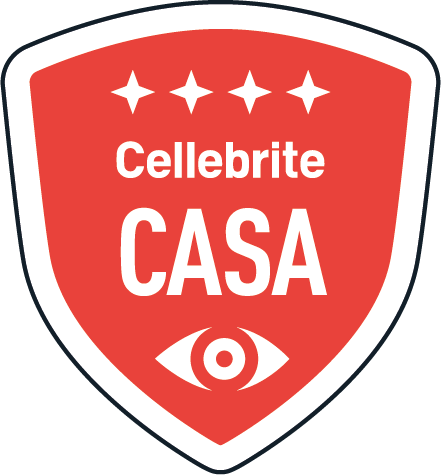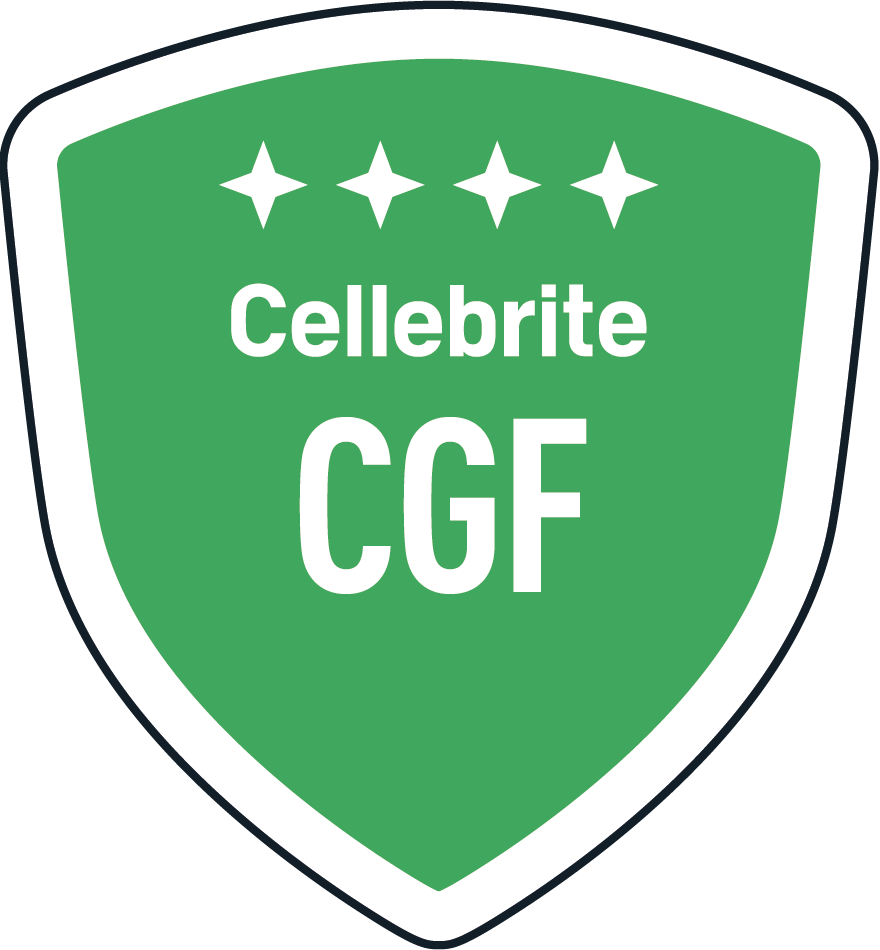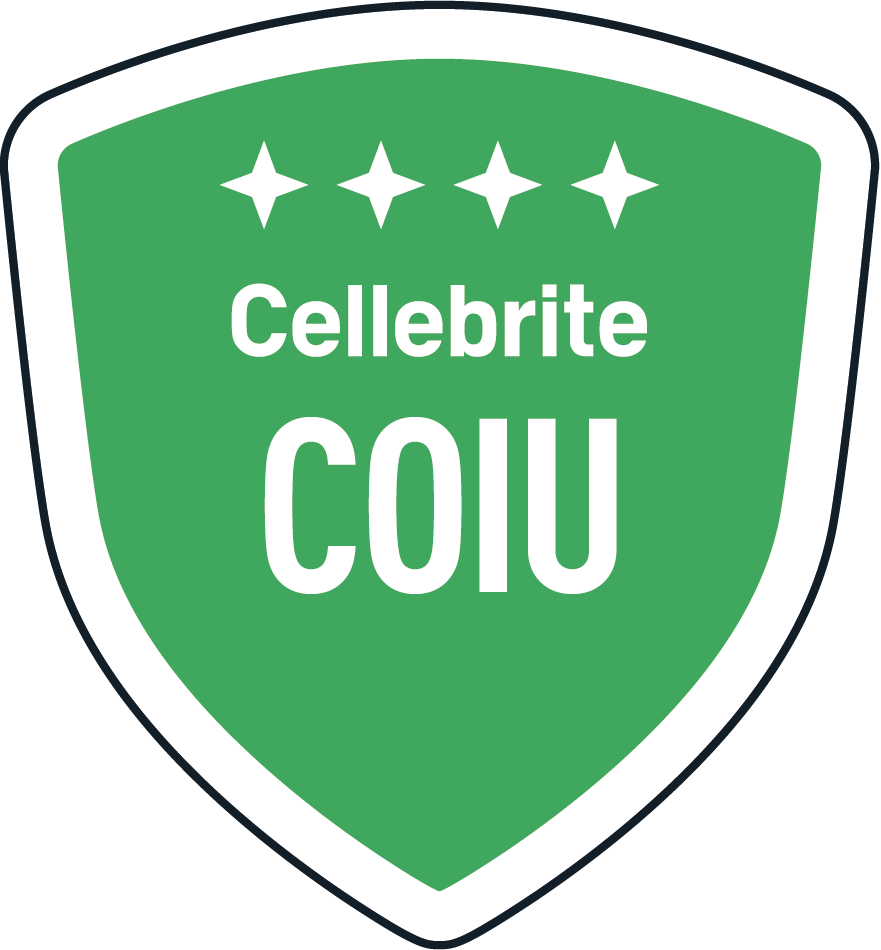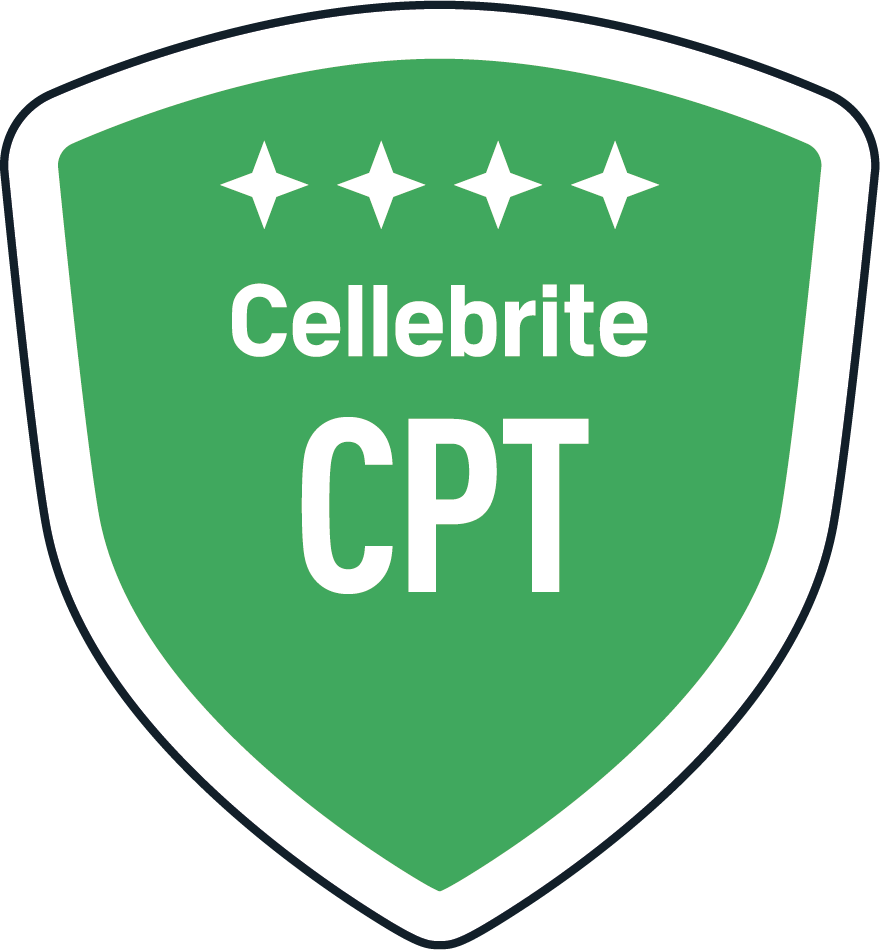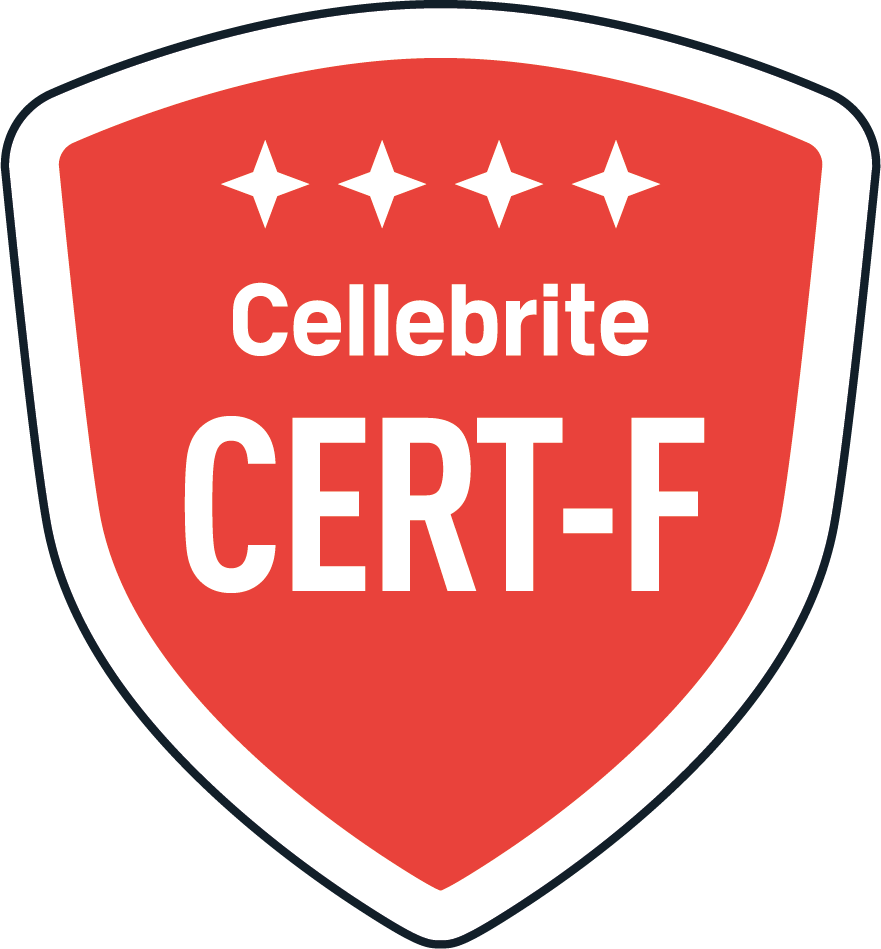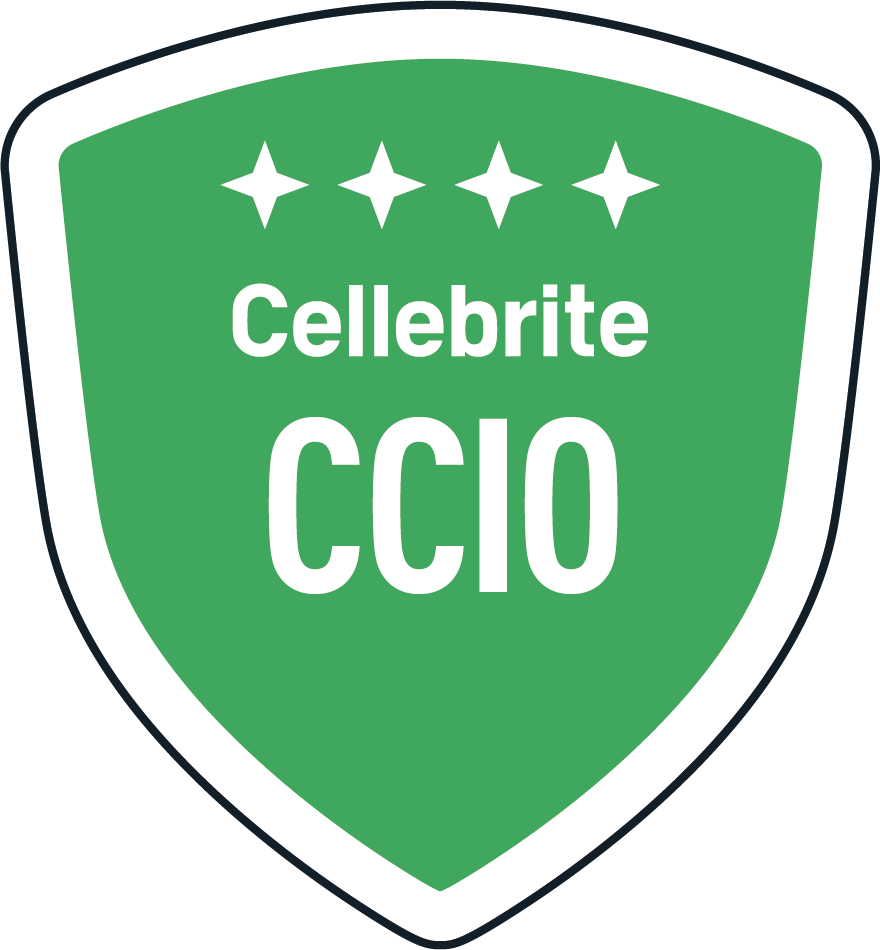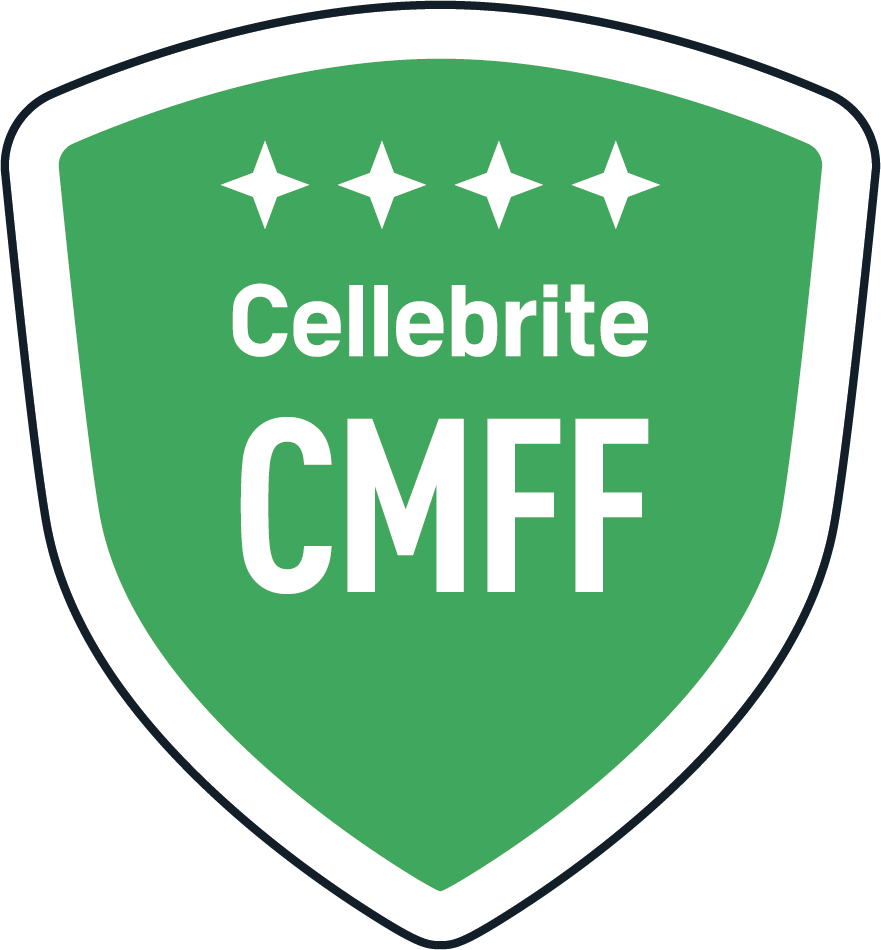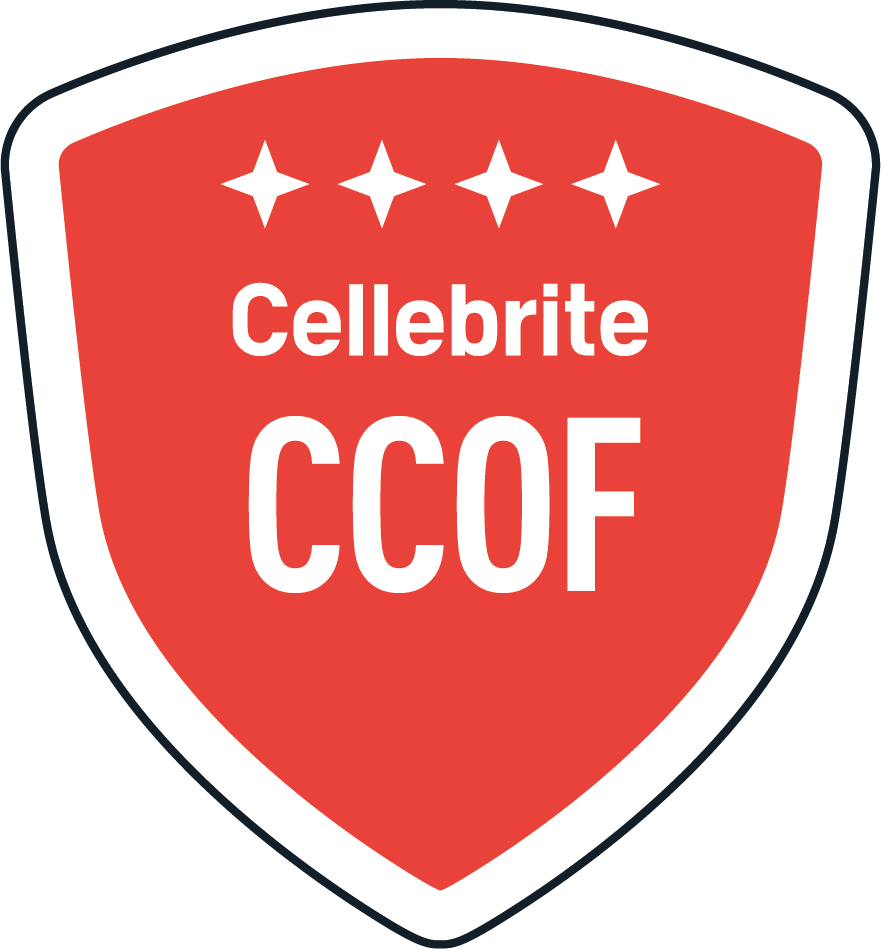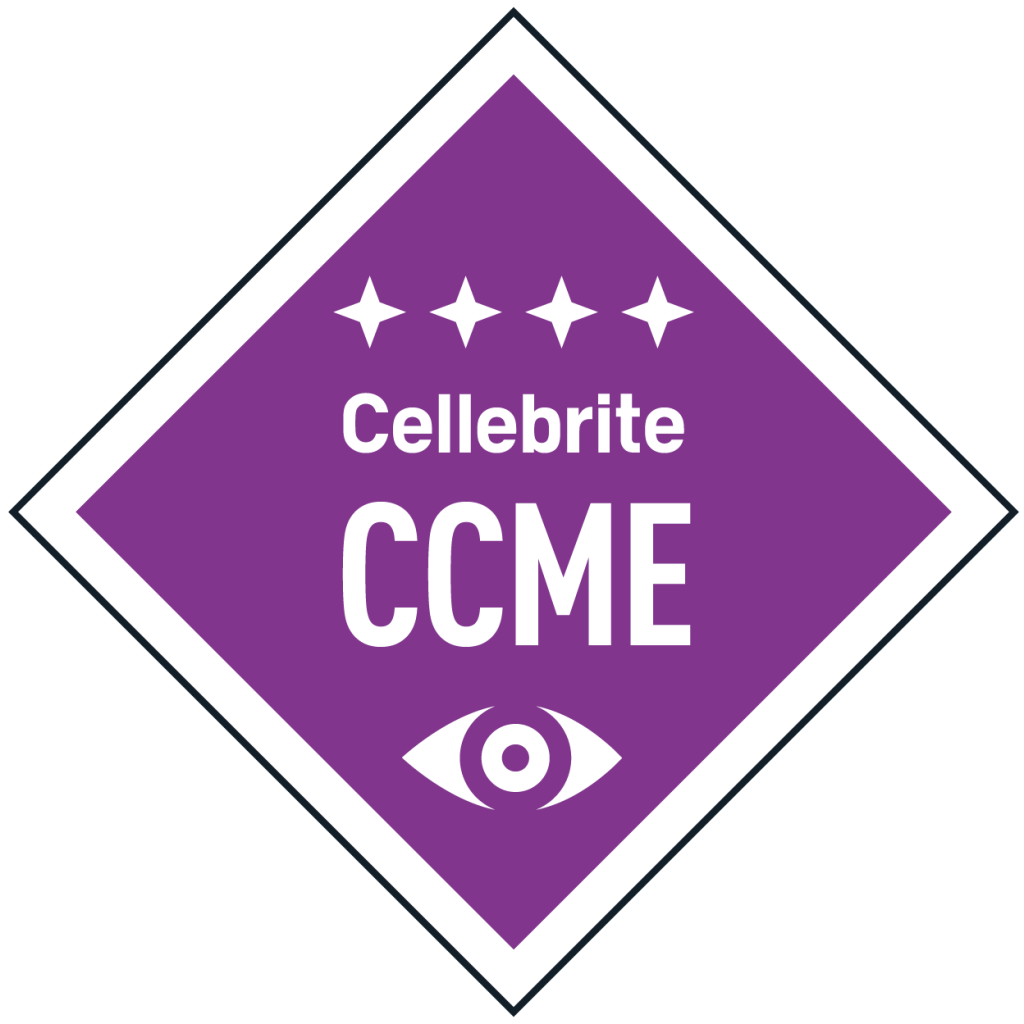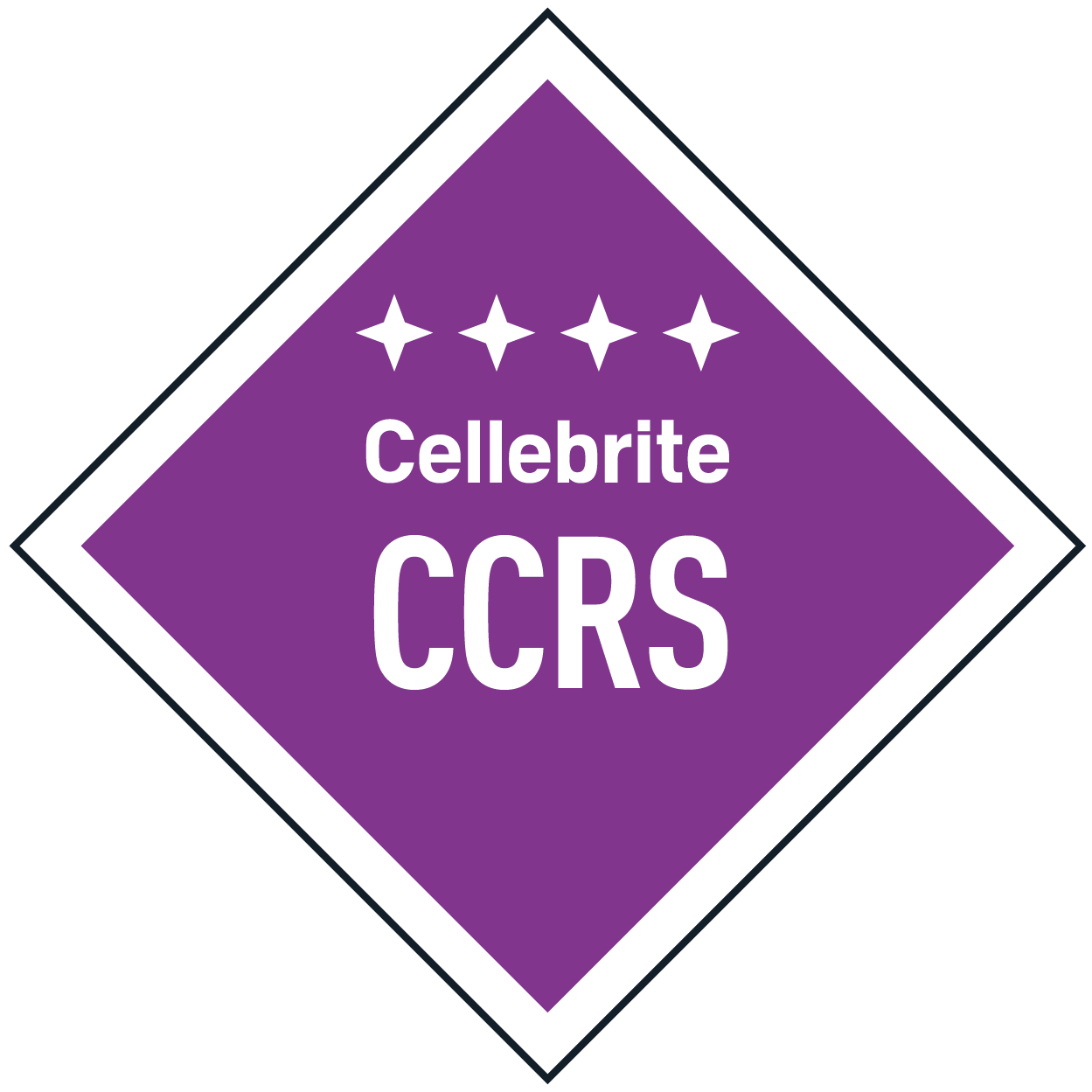
Upcoming Classes
Certification Overview
The Cellebrite Certified Recovery Specialist (CCRS) track is a hardware-based track designed to prepare practitioners with the knowledge, skills, and abilities to identify potential electronic evidence, properly collect data, and extract data on multiple digital devices – including smart devices, vehicle GPS, drones, IoTs, and many others. These course tracks also prepare to recover destroyed or encrypted evidence using destructive and non-destructive methods.
The CCRS track is made up of the following:
- Cellebrite Mobile Forensics Fundamentals (CMFF)
- Cellebrite Certified Operator (CCO)
- Cellebrite Chip Off Forensics (CCOF)
- Cellebrite Evidence Recovery Technician – Forensics (CERT-F)
Note: Cellebrite In-System Programming (CISP) is no longer an offered course and is no longer required for the CCRS certification.
To qualify for the CCRS Exam, all practicals must have been completed independently during the course. Students are expected to declare at each training event the intention to pursue the certification.
The CCRS Certification is valid for three (3) years. Recertification is required every 3 years to maintain an active CCRS status.
This certification will examine and validate that the practitioner has obtained the:
-
- -Ability to identify potential digital evidence which could otherwise be overlooked using traditional extraction methods.
- -Skills needed to recover destroyed or encrypted evidence using destructive and non-destructive methods.
- -Ability to complete Chip Off and In System Programming (ISP) extractions.
- -Knowledge of what types of potential evidence can be gained by IoT and Vehicle Infotainment systems, and methods for examining the data.
Certification Policies
Cellebrite Certification Policy
Cellebrite Training Code of Ethics and Professional Standards
Course FAQ's
What are the CCRS Program Requirements?
1. Cellebrite Mobile Forensic Fundamentals (CMFF) – Certificate of Completion
(Optional, but highly recommended for beginners)
2. Cellebrite Certified Operator (CCO) – Core Certification
3. Cellebrite Chip Off Forensics (CCOF) – Certificate of Completion
4. Cellebrite Evidence Recovery Technician – Forensics (CERT-F) – Certificate of Completion
Once all course requirements are met, the candidate must independently complete the Cellebrite Certified Recovery Specialist (CCRS) knowledge-based examination. CCRS Certification provides proof that the practitioner has demonstrated their ability to meet or exceed competencies in device repair and evidence recovery. Unless otherwise stated, every course requires a passing grade of 80% or above to obtain a certificate of completion.
How much does the CCRS cost?
The associated fee allows qualified candidates to apply for the CCRS capstone certification and attempt to pass the time-limited, proctored CCRS Examination. The fee covers administrative costs for a total of two attempts at the CCRS Examination.
Once I am eligible and enroll, how long do I have to complete the CCRS Examination?
This fee allows qualified candidates to enter the CCME process and have the ability to complete the following:
1. Download material associated with the practical skills assessment; and,
2. Attempt to pass the time-limited practical skills assessment to qualify for the CCME Certification Examination.
If the practical skills assessment is passed, candidates qualify to take the time limited and proctored CCME Certification Examination. The initial CCME process fee covers administrative costs and a single payment to a third-party proctoring service. CCME candidates are allowed a total of two attempts at the CCME Certification Examination.
What are the prerequisites?
1. Cellebrite Certified Operator (CCO) – Current, non-expired certification
2. Cellebrite Certified Physical Analyst (CCPA) – Current, non-expired certification
3. Cellebrite Advanced Smartphone Analysis - Certificate of Completion
* Cellebrite Mobile Forensic Fundamentals (CMFF) – is optional, but highly recommended. You may take the “CMFF Test Out Exam” if you wish to test out of this course.
Are there any technical requirements for the proctored examination?
We have established the Proctored Exam Preparation Guide page to aid student with preparing for this process. All students should visit this page prior to attempting the final exam.
What happens if I do not pass the CCRS?
-The second (and final) attempt shall take place only after a 30-day waiting period after the initial CCME Certification Examination failure. There is no waiver available for this waiting period.
-The second (and final) attempt shall take place no more than 30-days after the initial 30-day waiting period. There is no waiver available for this waiting period.
-If a candidate does not pass their second (and final) attempt at the CCRS Examination, the attempt at achieving CCRS certification terminates. To attempt the CCRS again, the candidate must meet all qualifications prior to reapplying for the CCRS and repay the program application fee.
What is the passing score?
Can I challenge questions or results?
How do I renew the CCRS?
There is no recertification examination for the CCRS recertification. To successfully renew the CCRS Certification, each certificant must pay a nominal recertification fee, reaffirm their intention to uphold the Cellebrite Training Code of Ethics and Professional Conduct, and submit proof of continuing professional development and work experience as follows:
-Continuing Professional Development: Cellebrite requires documentation verifying attendance at a minimum of 21 hours of continuing professional development related to mobile device or digital forensics from industry recognized organizations. Acceptable training hours include those offered by IACIS, US Secret Service NCFI, other industry-leading digital forensic training vendors or an accredited college providing an official curriculum of training in digital forensics. Full details on acceptable continuing professional development hours are available in the Cellebrite Certification Policy.
-Work Experience: At the time of recertification application submission, certificants must have examined or supervised the examination of a minimum of three (3) mobile devices during the previous certification period. Full details on acceptable work experience hours are available in the Cellebrite Certification Policy.
Recertification options are available in the system during the 12 months preceding your expiration date. Renewal of certifications which become expired may only be renewed for 12 months after expiration.
Prior to remediation for an expired CCRS certification, candidates must have current CCO certification which will require completion of the current CCO recertification course separately.
CCRS certificates not renewed within 12 months of expiration, will become invalid and the entire process must be started again if a candidate wishes to earn it again.
To see your recertification path, you must log in to your account first, then click HERE to see your recertification path.
What happens if I fail to renew my CCRS?
To renew an expired certification, the holder of that certification must apply for and successfully complete the CCRS recertification process within twelve (12) months of the certification expiration. Certificants will be responsible to pay any applicable administrative fees.
Certificants who fail to renew expired certifications within the 12-month grace period must qualify for, apply for and complete the CCRS program in its entirety

